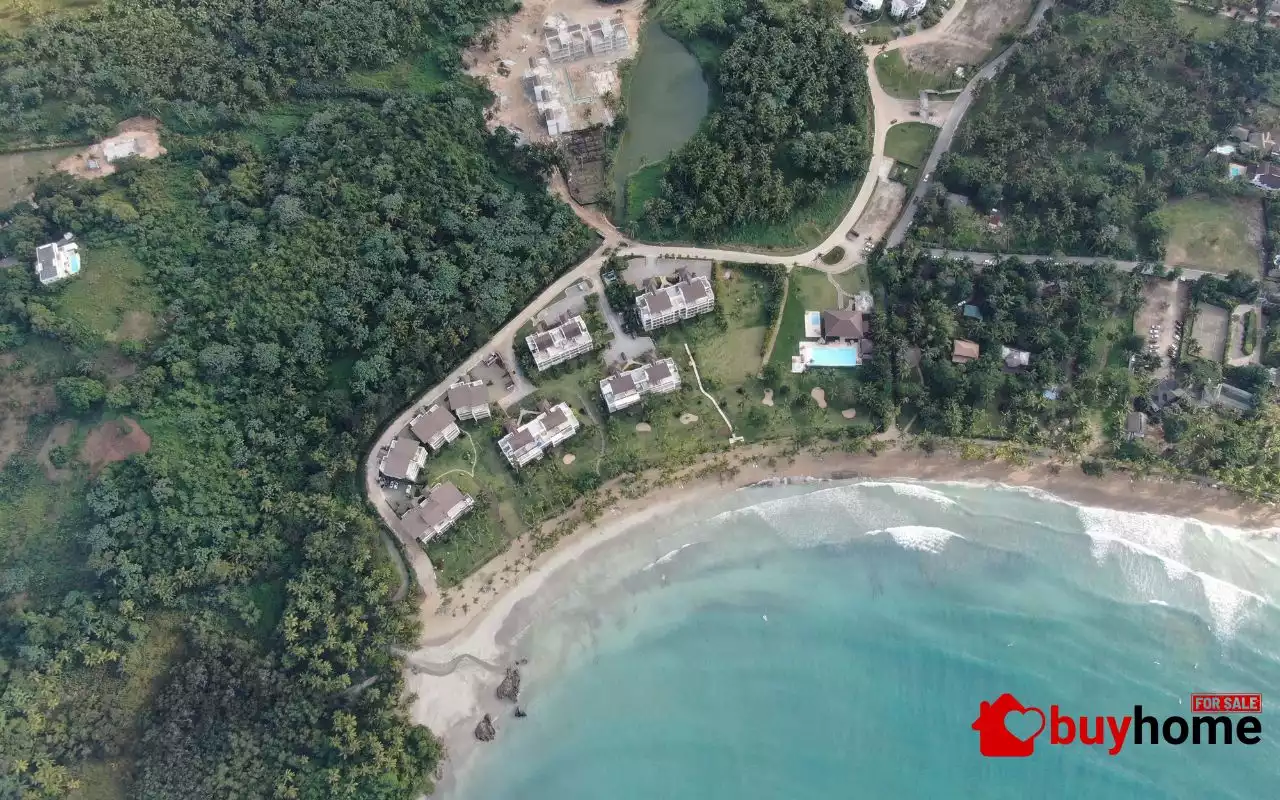📋 Table of Contents (TOC)
- Understanding the International Property Market
- Researching Your Desired Location
- Legal Considerations for Foreign Buyers
- Financing Your International Property Purchase
- Working with Real Estate Professionals
- Understanding Local Property Laws and Taxes
- Navigating the Purchase Process
- Post-Purchase Considerations
Understanding the International Property Market
The international property market can be an exciting yet daunting landscape for first-time buyers. Understanding the dynamics of this market is crucial to making informed decisions. The global real estate market varies significantly from one country to another, influenced by factors such as economic stability, political climate, and cultural nuances. As a first-time buyer, you should familiarize yourself with the general trends in the countries you are considering. For instance, some markets may be booming while others are experiencing a downturn. It’s essential to analyze property values, rental yields, and market forecasts. Additionally, consider the impact of currency fluctuations on your investment. Engaging with local real estate experts can provide valuable insights into market conditions and help you identify the best opportunities. Furthermore, understanding the motivations of other buyers in the market can give you a competitive edge. Are they looking for vacation homes, investment properties, or permanent residences? This knowledge can guide your purchasing strategy and help you align your goals with market realities.
Researching Your Desired Location
Choosing the right location is one of the most critical decisions you will make as a first-time international property buyer. Start by identifying your priorities: Are you looking for a bustling city, a serene beach town, or a quaint countryside? Each location offers distinct advantages and challenges. Once you have a general idea, dive deeper into specific areas. Research local amenities, such as schools, healthcare facilities, transportation options, and recreational activities. Understanding the lifestyle and culture of the area will help you determine if it aligns with your expectations. Additionally, consider the safety and security of the neighborhood. Look for crime statistics and community reviews to gauge the area’s livability. It’s also wise to visit the location in person, if possible, to get a feel for the environment and meet potential neighbors. Engaging with local real estate agents can provide further insights into the area’s market trends and property availability. Remember, the right location can significantly impact your property’s value and your overall satisfaction with your investment.
Legal Considerations for Foreign Buyers
Navigating the legal landscape of purchasing property abroad can be complex, especially for first-time international buyers. Each country has its own set of laws and regulations regarding foreign ownership of real estate. Before making any commitments, it’s essential to understand these legal frameworks. Some countries may have restrictions on foreign ownership, while others may require specific permits or licenses. Consulting with a local attorney who specializes in real estate can help you navigate these legalities. They can clarify the buying process, including necessary documentation, contracts, and any potential legal hurdles. Additionally, familiarize yourself with the concept of property titles and deeds in the country of your interest. Understanding the difference between freehold and leasehold properties, for instance, is crucial. Be aware of the implications of property taxes, inheritance laws, and any other legal obligations that may arise after your purchase. Taking the time to understand these legal considerations will protect your investment and ensure a smoother buying experience.
Financing Your International Property Purchase
Financing an international property purchase can be one of the most challenging aspects for first-time buyers. Traditional mortgage options may not be available, and securing financing can vary significantly from one country to another. Start by assessing your financial situation and determining how much you can afford to invest. Consider your options for funding the purchase, whether through savings, loans, or partnerships. Some buyers may choose to pay in cash, while others may seek financing from local banks or international lenders. Research the types of mortgages available in your desired location, including interest rates, terms, and eligibility criteria. It’s also essential to understand the currency exchange implications, as fluctuations can affect your overall costs. Additionally, consider working with a financial advisor who has experience in international real estate transactions. They can help you navigate the complexities of financing and ensure you make sound financial decisions throughout the buying process.
Working with Real Estate Professionals
Engaging with real estate professionals is a vital step for first-time international property buyers. Local agents possess invaluable knowledge about the market, neighborhoods, and property types. They can help you identify suitable properties that meet your criteria and budget. When selecting a real estate agent, look for someone with experience working with foreign buyers. They should understand the unique challenges you may face and be able to communicate effectively in your preferred language. Additionally, consider hiring a buyer’s agent who represents your interests, rather than the seller’s. This can help ensure that you receive unbiased advice and support throughout the negotiation process. Beyond real estate agents, consider consulting with other professionals, such as property inspectors, appraisers, and attorneys. Each plays a crucial role in ensuring that your purchase is sound and that you are making a wise investment. Building a reliable team of professionals will provide you with the confidence and support you need as you navigate the complexities of buying property abroad.
Understanding Local Property Laws and Taxes
Understanding local property laws and taxes is essential for first-time international property buyers. Each country has its own regulations governing property ownership, and these can significantly impact your investment. Familiarize yourself with the types of ownership available, such as freehold, leasehold, or cooperative ownership. Additionally, be aware of any restrictions on foreign ownership, as some countries may limit the percentage of property that can be owned by non-residents. Taxes are another critical consideration. Research the property tax rates in your desired location, as well as any additional taxes that may apply, such as capital gains tax, transfer tax, or stamp duty. Understanding these financial obligations will help you budget effectively and avoid any surprises after your purchase. Furthermore, consider the implications of local laws on rental properties if you plan to rent out your investment. Knowing the regulations regarding tenant rights and landlord responsibilities is crucial for successful property management. Engaging with a local real estate attorney can provide clarity on these laws and help ensure compliance.
Post-Purchase Considerations
After successfully purchasing your international property, there are several important considerations to keep in mind. First, ensure that you have all necessary documentation organized, including the title deed, purchase agreement, and any warranties or guarantees. It’s also essential to register your property with local authorities, if required, to establish your ownership officially. If you plan to rent out your property, familiarize yourself with local rental laws and regulations. This includes understanding tenant rights, lease agreements, and property management practices. Additionally, consider the ongoing costs associated with property ownership, such as maintenance, property taxes, and insurance. Establishing a budget for these expenses will help you manage your investment effectively. Furthermore, stay informed about market trends and local developments that may affect your property’s value. Engaging with local real estate professionals can provide ongoing support and insights as you navigate the responsibilities of property ownership. By being proactive and informed, you can maximize your investment and enjoy the benefits of your international property.
❓ Frequently Asked Questions
What should I consider before buying international property?
Before buying international property, consider factors such as location, legal restrictions, financing options, and local market conditions. Research the area thoroughly and consult with local experts.
Are there legal restrictions on foreign property ownership?
Yes, many countries have legal restrictions on foreign property ownership. It’s essential to research the specific laws in your desired location and consult with a local attorney.
How can I finance my international property purchase?
Financing options for international property purchases can vary. You may consider local mortgages, international lenders, or cash purchases. Assess your financial situation and explore all available options.
Do I need a real estate agent when buying abroad?
While it’s not mandatory, working with a local real estate agent can be highly beneficial. They have in-depth knowledge of the market and can help you navigate the buying process.
What are the typical costs associated with buying property abroad?
Typical costs include the purchase price, closing costs, legal fees, property taxes, and ongoing maintenance expenses. Be sure to budget for these additional costs.
How can I ensure a smooth purchase process?
To ensure a smooth purchase process, conduct thorough research, engage with local professionals, and understand the legal and financial aspects of the transaction.
What should I know about local property taxes?
Local property taxes can vary significantly. Research the tax rates in your desired location and understand any additional taxes that may apply to property ownership.
Is it necessary to visit the property before buying?
While it’s not strictly necessary, visiting the property can provide valuable insights into the area and help you make a more informed decision.
What are the benefits of buying property abroad?
Benefits of buying property abroad include potential investment returns, diversification of assets, and the opportunity to enjoy a second home in a different culture.
How do I manage my property after purchase?
Managing your property may involve hiring a property management company, understanding local rental laws, and budgeting for maintenance and repairs.
Purchasing property internationally can be a rewarding experience, but it requires careful planning and consideration. As a first-time buyer, it’s crucial to approach the process with a clear understanding of the market, legal requirements, and financial implications. By conducting thorough research and engaging with local professionals, you can navigate the complexities of buying abroad with confidence. Remember to prioritize your goals and preferences, whether you’re seeking a vacation home, rental investment, or permanent residence. The right location and property can enhance your lifestyle and provide long-term financial benefits. Stay informed about local market trends and be proactive in managing your investment. With the right approach, your international property purchase can become a valuable asset and a source of joy for years to come.



